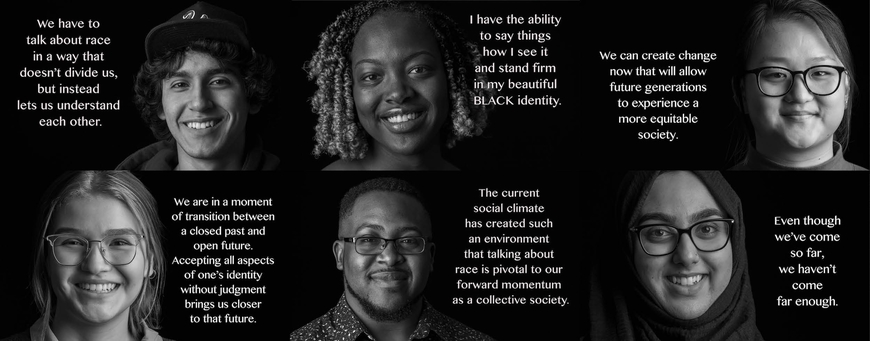Justice, Equity, Diversity and Inclusion

The CLA Undergraduate Education staffs actively promotes diversity, equity, inclusion, and social justice. With intentionality, we support and provide avenues for diverse perspectives, cultures, and values to be accepted, appreciated, and celebrated. We strive to create a community where every member is regarded with respect and feels a sense of belonging.
What We Value
- Compositional diversity, where there is representation of diverse groups on campus in numbers sufficient to encourage their active involvement in and contribution to the life of the institution.
- Cultural responsiveness, where the ability to learn from and relate respectfully with people of one’s own culture as well as those from other cultures creates a campus climate that values multicultural perspectives and fosters open- mindedness, compassion, and inclusiveness among individuals and groups.
- Equity-mindedness, where inequity is framed as a problem of practice rather than a problem with students, emphasizing the responsibility of higher education institutions, faculty, staff, and leaders to race-consciously eliminate disparities in educational outcomes and create equity for all students.
- Inclusive pedagogy, where teaching techniques prioritize treating all of our students equitably, giving them full access to learning and the tools they need to do so successfully and meaningfully, and ensuring they feel welcomed, supported, and valued as they learn.
- Restorative practices, where conflict is resolved via participatory learning in a framework that assumes when people are harmed, needs are created; the needs created by harms lead to obligations; and the obligation is to heal and put right the harms in order to restore relationships.
About Our Programming
The liberal arts educational experience in CLA develops 10 Core Career Competencies that contribute to lasting growth and success for our students. Our programming around diversity, equity, inclusion and social justice spans several of the competencies, and in particular "Engaging Diversity."
Engaging diversity is a process of cultivating awareness of one’s own identity and cultural background and that of others through an exploration of domains of diversity, which may include race, ethnicity, country of origin, sexual orientation, ability, class, gender, age, spirituality, etc. This requires an understanding of historical and social contexts and a willingness to confront perspectives of dominant cultural narratives and ideologies, locally, nationally, or globally.
Those who are competent in engaging diversity:
- Understand how culture affects perceptions, attitudes, values, and behaviors.
- Recognize how social structures and systems create and perpetuate inequities, resulting in social and economic marginalization and limited opportunities.
- Commit to the fundamental principles of freedom of thought and expression, equality, respect for others, diversity, and social justice; and to participate in society as conscious global citizens.
- Are able to navigate an increasingly complex and diverse world by appreciating and adopting multiple cultural perspectives or worldviews.